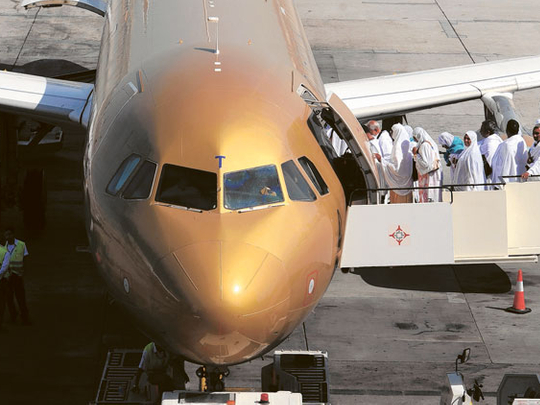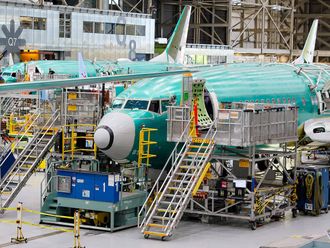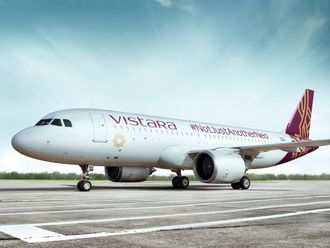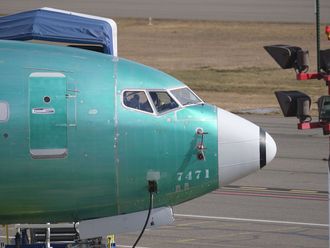
Manama A rejection by Bahrain's parliament of approval of a 664.3 million Bahraini dinar (Dh6.4 billion) payment to Gulf Air could jeopardise the national carrier's survival, the government has warned.
Finance Minister Shaikh Ahmad Bin Mohammad Al Khalifa and Transportation Minister Kamal Ahmad told leading members of both chambers of parliament that they needed to move promptly to help the ailing airline overcome its massive losses.
"Remaining passive and not making decisive moves or providing positive support will be a direct threat to Gulf Air's capability to survive and to overcome the daunting challenges it is now facing," the ministers said.
During discussions, the ministers said that the government had four options — dissolving the airline, selling it off and launching a new carrier, downsizing it or allowing it to continue in its current form.
The funding to boost the company's finances should be taken from the 2012 state budget, the ministers said, as they insisted on the airline's crucial role in supporting the national economy, in providing jobs for Bahrainis and in connecting Bahrain with the rest of the world. Strategic, financial and management accumulations over several years as well as local, regional and international developments have added to the company's challenges, the ministers said.
The incidents in Bahrain, the sharp decrease in the number of passengers over the King Fahd Causeway linking Bahrain with Saudi Arabia and the international financial and economic crisis were cited among the factors that worsened the challenges.
The lower chamber has been pushing for a parliamentary investigation into the company amid reports that it would be asking for more cash to overcome new financial difficulties.
The MPs said that they understood the scope of the difficulties and claimed that a new management approach would be needed.
However, Gulf Air officials said that their strategy that included a detailed plan for funding Gulf Air towards commercial sustainability by the end of 2012 had been hard hit by the events in the region. The company had to suspend its flights to the highly lucrative markets in Iraq and Iran.
"Under the strategy, we would reach the stage where we do not need any financial support and where our revenues cover our expenses, Samer Majali, Gulf Air's CEO, told Gulf News.
He said the company had planned to minimise losses in 2011 "but unfortunate incidents that hit many Arab countries, including Bahrain, had terrible effects on our plans."












